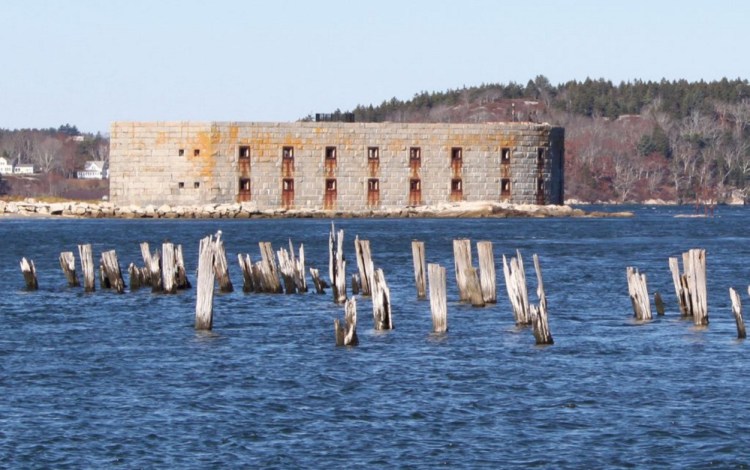AUGUSTA — A Board of Environmental Protection decision Thursday has paved the way for the removal of a set of pilings in Phippsburg’s Popham village that have been in place for more than 100 years.
The 6-to-1 decision denied the appeal made by the town of Phippsburg and abutters Rafeal Villamil and Ethan DeBery.
The appeal contested a Maine Department of Environmental Protection permit granted to Jack Parker, president and CEO of Reed & Reed Construction, for the removal of the pilings.
Parker, who owns a house near the pilings, applied for a permit to remove them after an engineering report he commissioned indicated that they are the likely cause of localized erosion.
The town and many residents objected to the removal of the pilings because of their historic, cultural and aesthetic significance. The pilings are a remnant of a Boston Steamship Co. pier that once served tourists visiting the Popham region in the early 20th century.
Villamil said the science of whether the pilings hurt or help the properties nearby isn’t conclusive enough to merit their removal.
The Ransom Engineering report Parker commissioned indicated that a concave beach decreases wave energy, while removing the pilings would result in a straighter beach. The appellants point to a Maine Geological Survey determination that the complex and ever-changing nature of the Popham Beach area make it difficult to predict what would happen if the pilings were removed.
The board sided with Parker and was concerned primarily with whether Parker had permission to remove the pilings based on land-access rights.
The pilings are technically situated on state property that falls under the Maine Bureau of Parks and Lands, which Parker contacted to determine whether he could remove the pilings.
The bureau deems the pilings abandoned property, and determined that Parker did not need a permit.
In the end, the Board of Environmental Protection voted in favor of denying the appeal, which paves the way for Parker to remove the pilings.
DeBery worries that the decision could set a precedent in Maine that allows anyone to remove something in a waterway as long as they go through the permitting process. He cites the fact that the DEP itself stated during its meeting that someone living 3 miles upriver would technically have the same right to a permit to remove the pilings.
“It could pave the way for anybody who doesn’t like something to pull it out,” DeBery said.
Others present Thursday felt the removal of the pilings could be an environmental hazard in an important region for fishing and aquaculture in the state.
“How many pilings do we not see, and how will the removals of those pilings affect the environment?” said former state Rep. Leila Percy, who served on the Marine Resources Committee for three terms.
While the town and the abutters could file an appeal in Superior Court, many felt the cost would likely be too steep.
“The town won’t be able to afford to fight this any further,” said Barbara Keltonic, who helped write the appeal.
Other expressed anger that one person was deciding the fate of objects that many in the town have enjoyed for decades.
Mark Bergeron of the DEP said the department’s decision was based on the strict standards it adheres to in every instance of permitting.
“Our job is not to advocate one way or the other,” Bergeron said. “If all the standards have been met, then we have to, by law, issue a permit.”
The board’s decision affirms that Parker met every requirement for permitting.
Parker said he will likely not remove the pilings this winter. The permit Parker has been granted is valid for the next four years.
Send questions/comments to the editors.



Success. Please wait for the page to reload. If the page does not reload within 5 seconds, please refresh the page.
Enter your email and password to access comments.
Hi, to comment on stories you must . This profile is in addition to your subscription and website login.
Already have a commenting profile? .
Invalid username/password.
Please check your email to confirm and complete your registration.
Only subscribers are eligible to post comments. Please subscribe or login first for digital access. Here’s why.
Use the form below to reset your password. When you've submitted your account email, we will send an email with a reset code.